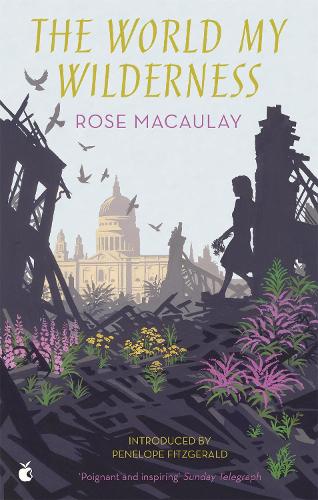
The World My Wilderness
(Paperback)
Publishing Details
The World My Wilderness
By (Author) Rose Macaulay
Introduction by Penelope Fitzgerald
Little, Brown Book Group
Virago Press Ltd
13th February 2018
8th February 2018
United Kingdom
Classifications
Physical Properties
Paperback
256
Width 198mm, Height 129mm, Spine 16mm
176g
Description
'Poignant and inspiring' SUNDAY TELEGRAPH
'The World My Wilderness . . . had a powerful effect on me as a young reader' HERMIONE LEE, GUARDIAN 'An elegiac, evocative depiction of the aftermath of the Second World War' PARIS REVIEW It is 1946 and the people of France and England are facing the aftermath of the War. Sent by her beautiful, indolent mother to England, Barbary Deniston is thrown into the care of her distinguished father and conventional stepmother. Barbary has spent her childhood years in the sunshine of Provence. During the War, she ran wild with the Maquis, experiencing collaboration, betrayal and resistance. In peacetime the young woman has been taken away from all she knows and placed into the drab austerity of post-war London life. Confused and unhappy, she discovers the flowering bomb craters around St Paul's Cathedral. Here, in the bombed heart of London, with the outcasts living on the edge of society, she finds an echo of the wilderness of Provence and is forced to confront the wilderness within herself.Reviews
The World My Wilderness ... had a powerful effect on me as a young reader, growing up in postwar London. Its landscape of bombed churches and derelict streets powerfully expresses Macaulay's sense of desolation during and after the war, for herself and for Europe. - Hermione Lee, Guardian
Poignant and inspiring - Sunday TelegraphAuthor Bio
Rose Macaulay (1881-1958) was born in Rugby, Warwickshire. She studied Modern History at Somerville College, Oxford and wrote her first novel, Abbots Verney in 1906. She was introduced to the London literary scene by her childhood friend Rupert Brooke, and her friends included Ivy Compton-Burnett, Virginia Woolf, E. M. Forster, Rosamond Lehmann and Elizabeth Bowen. Macaulay became a celebrated writer who published over thirty works of fiction, non-fiction and poetry in her lifetime, including Crewe Train and The World My Wilderness. She won the James Tait Black Memorial prize for her final novel, The Towers of Trebizond (1956) and was awarded the DBE in 1957.
